Can Horses Recognize Human Emotions? The Surprising Truth About Equine Empathy
Can Horses Recognize Human Emotions? What 45 Years of Experience Taught Me About Equine Empathy
My horses always knew when I’d had a bad day—before I said a word. Discover what science reveals about horses’ remarkable ability to read human emotions, and how to use this knowledge to strengthen your bond.
Charming Harry, my big Thoroughbred ex-racehorse, had a sixth sense. On days when I bounced into the stable in a great mood, he took it as an invitation to play. Tacking up became a dance of sidesteps and “forgetfulness” about standing still, like he was saying, “Oh, you’re in a good mood? Let’s have some fun!”
But on days when I dragged myself to the stables after a difficult day at the office? He transformed. Suddenly, I had a statue instead of a horse—standing rock-solid, all business, like he knew I wasn’t in the mood for shenanigans.
The question that fascinated me: Just how tuned in are horses to our emotions? And more importantly, how does this affect the way they act around us?
After 45 years with horses, I’ve experienced this emotional connection countless times. Now science is finally catching up to what horse people have always known—horses don’t just sense our emotions, they respond to them in sophisticated ways that can profoundly affect our relationship with them.
Quick Answer
Yes, horses can recognize human emotions through facial expressions, voice tones, body language, and even physiological cues like heart rate changes. Scientific studies confirm that horses can distinguish between happy and angry human faces, match vocal tones to expressions, and show measurable physiological responses to human emotional states. This ability is rooted in their evolution as prey animals and strengthens when horses have close relationships with specific humans.
In this article:
- Scientific Studies: What Research Reveals
- How Horses Respond to Different Human Emotions
- What Affects a Horse’s Ability to Read Emotions
- Practical Applications for Horse Owners
- Using Emotional Awareness to Strengthen Your Bond
- Frequently Asked Questions

- Facial Expression Recognition Study (2016): Researchers at the University of Sussex conducted a groundbreaking study published in Biology Letters. They showed horses photographs of human faces expressing different emotions.

Scientific Studies: What Research Reveals About Equine Empathy
For years, horse owners insisted their horses could sense their moods. Scientists were skeptical—until recent research proved we were right all along.
Study #1: Facial Expression Recognition (2016)
Institution: University of Sussex
Published in: Biology Letters
What they did:
Researchers showed horses photographs of human faces expressing different emotions—happy versus angry expressions.
What they found:
- Horses looked more with their left eye when viewing angry faces (associated with perceiving negative stimuli in horses’ brains)
- Heart rates increased significantly when looking at angry faces
- Horses approached happy faces more readily than angry ones
What this means: Horses don’t just see different facial expressions—they understand the emotional content and respond accordingly. This isn’t just visual recognition; it’s emotional comprehension.
Study #2: Cross-Modal Recognition (2018)
Published in: Scientific Reports
What they tested:
Could horses match vocal tones with facial expressions? Can they integrate information across different sensory channels to recognize emotions?
Results:
- Horses successfully matched angry vocal sounds with angry facial expressions
- They matched happy vocal sounds with happy facial expressions
- This ability worked even with unfamiliar human faces
What this means: Horses have sophisticated emotional recognition that goes beyond just reading facial cues or voice separately. They integrate multiple sources of information, much like humans do when assessing someone’s emotional state.
Study #3: Heart Rate Variability (2020)
Institution: Hokkaido University
What they measured:
Scientists examined horses’ physiological responses (heart rate changes) when exposed to different human emotional states.
Key findings:
- Horses’ heart rates increased when approached by humans exhibiting nervousness or fear
- Calm and confident human behavior resulted in lower horse heart rates
- These changes occurred before physical contact—horses were responding to emotional cues alone
What this means: Your emotional state physically affects your horse’s stress levels. When you’re anxious, your horse becomes anxious. When you’re calm, your horse relaxes. This is why experienced horsemen always emphasize staying calm around horses—it’s not just good advice, it’s biological reality.
The Bottom Line from Research:
These studies collectively demonstrate that horses possess a sophisticated ability to recognize and respond to human emotions. They can:
- ✅ Interpret facial expressions
- ✅ Understand voice tones
- ✅ Read body language
- ✅ Match expressions with appropriate vocal cues
- ✅ Show physiological responses to human emotional states
This research confirms what many horse enthusiasts have long experienced but also opens up new avenues for understanding and improving horse-human interactions.

How Horses Respond to Different Human Emotions
Now that we know horses can recognize our emotions, let’s explore how they typically respond to various emotional states. Understanding these patterns can help you interpret your horse’s behavior and manage your own emotional state more effectively.
😊 Positive Emotions (Happiness, Calmness)
When you’re happy:
- Approach behavior: Horses come to you more readily and show curiosity
- Body language: Relaxed posture, ears forward, soft eyes
- Social engagement: May initiate friendly contact like gentle nuzzling
- Playfulness: Some horses (like Charming Harry!) interpret your good mood as playtime
When you’re calm:
- Mirroring: Horses often become more relaxed themselves
- Relaxation signals: May lower heads, lick lips, or yawn
- Easier handling: Calm humans find horses more cooperative
- Better learning: Training sessions are more productive in this state
😠 Negative Emotions: Anger
Why horses are sensitive to anger: As prey animals, horses evolved to detect threats. Anger signals potential danger.
How horses respond to human anger:
- Tension: Become tense or wary, raising heads and stiffening muscles
- Avoidance: May move away or refuse to approach
- Anxiety signs: Tail swishing, stomping, whites of eyes showing
- Defensive behavior: In some cases, horses may become defensive if they perceive the anger as threatening
- Reduced cooperation: Training becomes difficult or impossible
Important: Never work with horses when you’re angry. Not only is it unsafe, but you’re also teaching the horse to associate you with negative emotions, which damages your relationship long-term.
😨 Negative Emotions: Fear
Why this is so powerful: Fear is contagious among prey animals. When one herd member shows fear, others respond immediately.
How horses respond to human fear:
- Heightened alertness: Become hypervigilant, scanning for threats
- Fear response: May spook easily or attempt to flee
- Amplification: Your fear can escalate a mildly concerning situation into a dangerous one
- Comfort seeking: Interestingly, some bonded horses try to comfort fearful humans
The vicious cycle: You feel scared → Horse senses it and becomes scared → You become more scared because horse is scared → Horse escalates further. Breaking this cycle requires conscious emotional regulation.
😢 Negative Emotions: Sadness
Responses to human sadness can vary significantly depending on the individual horse and your relationship:
Common responses:
- Gentle comfort: Some horses approach and offer comfort, much like they would to a distressed herd mate
- Quiet presence: May stand quietly near you, offering companionship
- Mirroring: Others become quieter or more subdued, matching the somber mood
- Gentle contact: Soft nuzzling or resting their head near you
Personal observation: I’ve found that horses often seem to sense when you need quiet companionship versus active comfort. They adjust their response based on subtle cues we’re not even aware we’re giving.
😐 Neutral Emotions
When you’re in a neutral emotional state:
- Calm but alert: Horses remain attentive but relaxed
- Environmental focus: More focused on surroundings than your emotional state
- Ideal for training: Without emotional distractions, horses can concentrate better on learning
- Professional mindset: This is often the best state for groundwork and training sessions
Related reading: Understanding how horses respond to emotions is particularly important when dealing with jealousy. If you’ve noticed possessive behavior in your horse, they may be responding to your emotional state as much as to the situation itself. Learn more about horse jealousy and how to manage it.

Factors Affecting Horses’ Emotional Recognition
While horses generally have the ability to recognize human emotions, several factors can influence how accurately they perceive and respond to these emotions:
Familiarity with the human
The level of familiarity between a horse and a human can significantly impact emotional recognition:
- Bonded relationships:
- Horses often become more attuned to the emotions of humans they know well.
- They may pick up on subtler emotional cues from their regular handlers or riders.
- This increased sensitivity can lead to more nuanced and appropriate responses.
- Strangers:
- Horses may be more cautious in interpreting emotions from unfamiliar humans.
- They might rely more heavily on obvious visual and auditory cues rather than subtle signals.
- Initial interactions may involve more assessment from the horse’s side.
The horse’s own personality and experiences
Each horse is an individual, and their unique characteristics play a role in emotional recognition:
- Temperament:
- More sensitive or reactive horses may be quicker to pick up on and respond to human emotions.
- Calmer, more stoic horses might show less obvious reactions to human emotional states.
- Past experiences:
- Horses with positive human interactions may be more open to reading and responding to human emotions.
- Those with traumatic experiences might be more guarded or misinterpret certain emotional cues.
- Training:
- Horses that have been trained to be attentive to human cues may be more adept at recognizing emotions.
- Some disciplines, like equine-assisted therapy, specifically cultivate horses’ ability to respond to human emotional states.
Environmental factors
The context in which the interaction occurs can affect a horse’s ability to recognize emotions:
- Stress levels:
- In high-stress environments (e.g., loud noises, unfamiliar settings), horses may be less focused on human emotions.
- Their own stress responses might override their ability to accurately interpret human emotional cues.
- Distractions:
- The presence of other horses, food, or environmental stimuli can divert a horse’s attention from human emotions.
- A calm, familiar environment may allow for better emotional recognition and response.
- Physical comfort:
- A horse that is in pain, hungry, or otherwise uncomfortable may be less attuned to human emotions.
- Ensuring a horse’s basic needs are met can improve their capacity for emotional recognition.
Understanding these factors can help us create optimal conditions for horses to recognize and respond to our emotions. It also reminds us that emotional recognition is a complex process influenced by many variables, and we should always approach horse-human interactions with this nuanced understanding in mind.

Practical Applications: Using This Knowledge in Real Life
Understanding that horses recognize our emotions isn’t just fascinating—it has profound practical implications for how we interact with them daily.
For horse owners and riders
- Emotional self-awareness:
- Owners and riders should be mindful of their own emotional state when interacting with horses.
- Practicing emotional regulation can lead to more positive and productive interactions.
- Safety considerations:
- Understanding that horses react to human emotions can help prevent accidents.
- For example, remaining calm in tense situations can help keep a horse from becoming overly reactive.
- Building stronger bonds:
- Consistent positive emotional interactions can strengthen the horse-human relationship.
- Being aware of how your emotions affect your horse can lead to better communication and trust.

In therapeutic settings (e.g., equine-assisted therapy)
- Emotional mirroring:
- Therapists can use horses’ ability to reflect human emotions as a tool for client self-awareness.
- Observing how horses respond to clients can provide insights into the clients’ emotional states.
- Non-verbal communication:
- Horses’ sensitivity to emotions can be particularly beneficial for clients who struggle with verbal expression.
- The horse’s reactions can serve as a form of biofeedback for clients working on emotional regulation.
- Safe emotional exploration:
- The non-judgmental nature of horses can create a safe space for clients to explore and express emotions.
- Positive interactions with horses can boost confidence and emotional well-being.

For horse trainers and handlers
- Training techniques:
- Trainers can leverage horses’ emotional recognition to enhance training methods.
- Using positive emotions can create a more receptive learning environment for horses.
- Troubleshooting behavioral issues:
- Understanding how human emotions affect horses can help identify the root causes of some behavioral problems.
- Adjusting the handler’s emotional approach may resolve issues more effectively than focusing solely on the horse’s behavior.
- Facility management:
- Creating calm, positive environments can improve overall horse well-being and responsiveness.
- Training staff to be aware of their emotional impact can lead to better-managed equine facilities.
By applying this knowledge of horses’ emotional recognition abilities, we can create safer, more effective, and more rewarding interactions across all areas of equine-human engagement. This understanding not only benefits the horses but also enriches our own experiences and relationships with these perceptive animals.

Developing Stronger Bonds Through Emotional Awareness
Understanding that horses can recognize our emotions provides a powerful tool for strengthening our relationships with these sensitive animals. Here are some practical tips for using emotional awareness to deepen your bond with horses:
Tips for being more emotionally aware around horses
- Practice mindfulness:
- Before interacting with a horse, take a moment to check in with your own emotional state.
- Take deep breaths and center yourself if you’re feeling stressed or anxious.
- Be authentic:
- Horses respond best to genuine emotions, so don’t try to mask your feelings.
- Instead, work on managing your emotions positively.
- Use body language consciously:
- Be aware that your posture, movements, and facial expressions all communicate your emotional state to the horse.
- Practice open, relaxed body language to convey positive emotions.
- Observe the horse’s reactions:
- Pay close attention to how the horse responds to your presence and emotions.
- Use their feedback to adjust your own emotional state if necessary.
- Develop emotional consistency:
- Try to maintain a calm and positive emotional state around horses.
- If you’re having a bad day, acknowledge it and take steps to manage your emotions before interacting with horses.
How to use this knowledge to improve horse-human relationships
- Create positive associations:
- Approach horses with calm, happy emotions to build trust and positive experiences.
- Use your emotional state to set the tone for each interaction.
- Use emotional mirroring:
- If a horse seems anxious, consciously project calmness to help soothe them.
- Match your energy level to the horse’s for more harmonious interactions.
- Enhance communication:
- Use your emotional awareness as an additional communication channel with the horse.
- Pay attention to subtle changes in the horse’s behavior in response to your emotions.
- Practice patience:
- Recognize that horses may have good and bad days too, just like humans.
- If a horse seems unreceptive, take a step back and reassess your emotional approach.
- Build trust through consistency:
- Strive to be emotionally consistent in your interactions with horses.
- This reliability can help horses feel more secure and strengthen your bond.
- Use emotions in training:
- Incorporate your understanding of emotional recognition into your training methods.
- For example, use excitement and praise to reinforce positive behaviors.
- Share calm moments:
- Spend quiet time with horses, simply being present and calm.
- These shared peaceful moments can significantly strengthen your bond.
By implementing these strategies, you can create a more emotionally attuned relationship with horses. This awareness not only enhances your connection with these magnificent animals but also contributes to their well-being and can make all of your interactions safer and more rewarding.
Remember, developing emotional awareness is an ongoing process. Be patient with yourself and the horse as you work on strengthening this aspect of your relationship. The rewards of a deeper, more nuanced connection with your equine partners are well worth the effort.
Frequently Asked Questions About Horses and Human Emotions
Can horses sense when you’re sad?
Yes, horses can sense sadness through multiple cues including body language, facial expressions, voice tone, and even changes in your scent and energy level. Many horses respond to sad humans with gentle comfort behaviors like standing quietly nearby, soft nuzzling, or lowering their heads. However, individual horses respond differently—some become more attentive while others mirror the subdued mood.
Do horses know when you’re scared of them?
Absolutely. Horses are extremely sensitive to fear because fear detection is a survival mechanism for prey animals. When you’re afraid, your body language changes (tension, shallow breathing, rigid movements), your heart rate increases, and you may even smell different due to stress hormones. Horses pick up on all these cues. Unfortunately, your fear can make a horse nervous, creating a feedback loop that makes the situation worse.
Can horses tell if you’re a good person?
Horses don’t judge “good” vs “bad” the way humans do, but they absolutely assess whether someone is safe, consistent, and emotionally stable. They respond positively to calm, confident, kind people and negatively to those who are tense, angry, or unpredictable. Over time, horses form strong opinions about individuals based on their emotional consistency and treatment. A horse’s reaction to someone often reflects that person’s typical emotional state and behavior patterns.
How do horses react to angry people?
Horses typically respond to human anger with wariness and tension. They may move away, raise their heads in alertness, show anxiety through tail swishing or stomping, or in some cases become defensive. Research shows that horses’ heart rates increase and they show increased stress when viewing angry human facial expressions or being around angry people. This is why it’s crucial never to work with horses when you’re angry—it compromises both safety and trust.
Can horses sense your energy?
Yes, though “energy” is a somewhat vague term. What people describe as “sensing energy” is actually horses detecting multiple physiological and behavioral cues: your breathing rate, heart rate, muscle tension, body language, scent changes from stress hormones, and subtle movements. Horses evolved to be exquisitely attuned to these signals because detecting the emotional state of herd members (and potential threats) is essential for survival. So while it may feel like they’re reading your “energy,” they’re actually reading a complex combination of measurable physical signals.
Do horses remember how you treated them?
Yes, horses have excellent long-term memory, especially regarding emotional experiences. A horse will remember if you’ve consistently been calm and kind versus if you’ve been harsh or frightening. This is why a horse who has been abused may remain wary of humans for years, even after being in a good home. Conversely, horses often form deep, lasting bonds with people who have consistently treated them with kindness and respect. Your emotional consistency builds (or breaks) trust over time.
Can horses feel human emotions or just detect them?
Horses definitely detect human emotions through their senses, but research suggests they may also experience something akin to emotional contagion—actually feeling echoes of those emotions themselves. When horses see angry human faces, their heart rates increase, suggesting they experience a stress response, not just recognition. This is similar to how humans can “catch” emotions from others. Whether horses fully understand the nuances of human emotions as we experience them is still debated, but they clearly don’t just observe—they respond physiologically and emotionally.
Why do horses calm down when I’m calm?
This is due to emotional contagion and mirroring behavior. In wild horse herds, when the lead mare is calm, the herd relaxes. When she’s alert, everyone becomes alert. Domestic horses apply this same social learning to humans. When you’re calm, your body language, breathing, and energy communicate “no threat detected,” which helps the horse relax. Additionally, horses often bond with specific humans and look to them for emotional cues, much like they would with herd leaders. Your calmness literally helps regulate their nervous system.
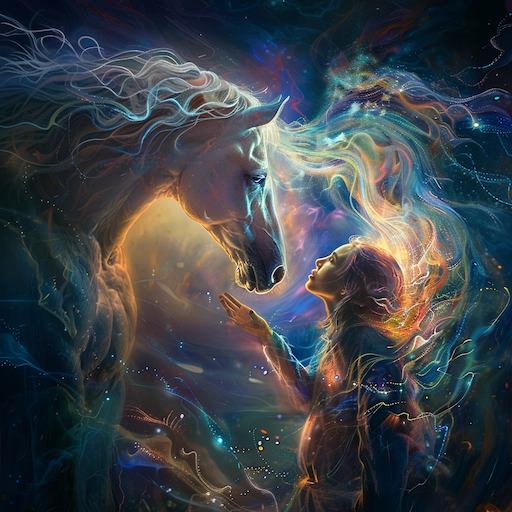
Track Your Horse’s Emotional Responses
Understanding how your horse responds to your emotions is easier when you can track patterns over time. Are they more reactive on stressful days? Do they calm down when you implement emotional management strategies?
I’ve created a free Multi-Horse Management Dashboard that helps you:
- Log daily interactions and your emotional state
- Track behavioral patterns over time
- Identify triggers and responses
- Get insights about your horse-human relationship
Works on your phone. No download required. Start tracking today.
The Bottom Line: Your Emotions Matter
The ability of horses to recognize human emotions is not just a myth perpetuated by horse enthusiasts—it’s a scientifically supported fact with far-reaching implications for our relationships with these remarkable animals.
What This Means for You:
- Safety: Your emotional state directly affects your horse’s behavior. Staying calm prevents accidents.
- Training: Understanding emotional recognition enables more effective training techniques.
- Bonding: Emotional awareness facilitates deeper connections with your horse.
- Therapy: Horses’ emotional sensitivity opens possibilities for human healing and growth.
- Responsibility: Recognizing this connection places responsibility on us to be mindful in our interactions.
By cultivating emotional awareness and striving for positive, consistent emotional states around horses, we create more harmonious, productive, and rewarding relationships with these perceptive animals.
Remember: Every interaction with a horse is an opportunity for communication and connection. By paying attention to our own emotional states and how they affect our equine partners, we unlock new levels of understanding and companionship with these magnificent creatures.
Continue Learning:
Understanding how horses read our emotions is particularly important when dealing with behavioral issues. If your horse shows possessive or jealous behavior, they may be responding to emotional cues you’re not aware you’re sending. Read my article on horse jealousy to learn more about managing complex equine emotions.
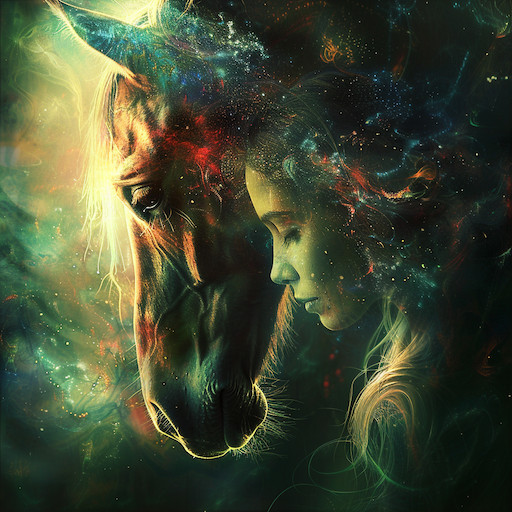
Further resources
- BBC Earth: “Horses can read human emotions”
- Horse & Hound: “Horses can tell when human voices and facial expressions don’t match”
- How horses perceive human emotions
Please leave a comment to start a conversation – what have horses helped you with in your life?

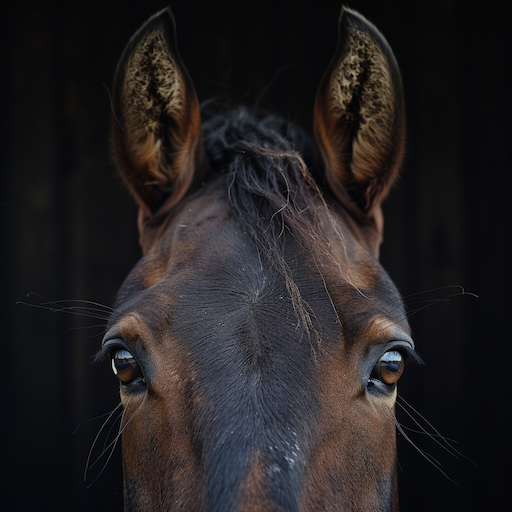

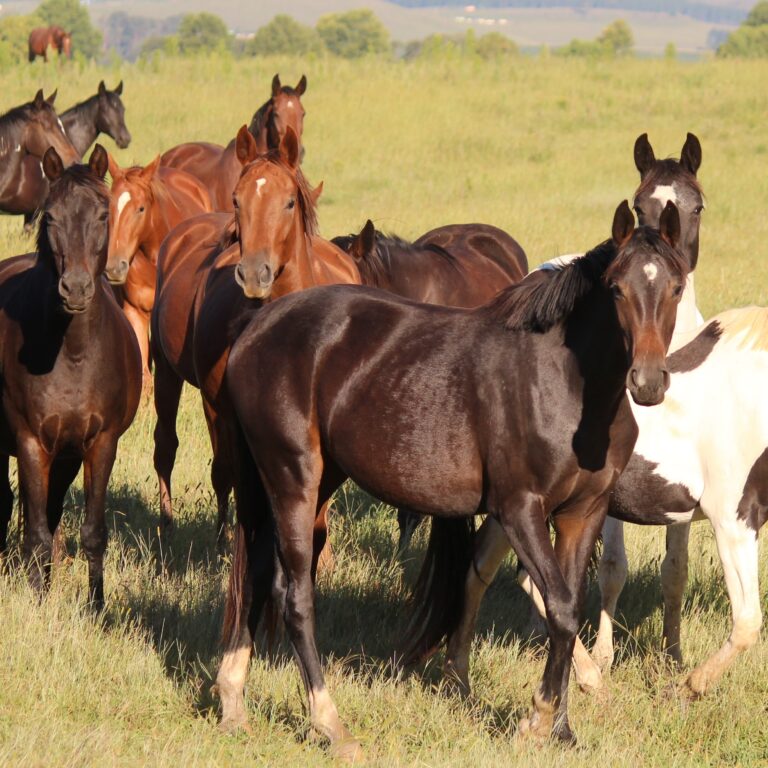
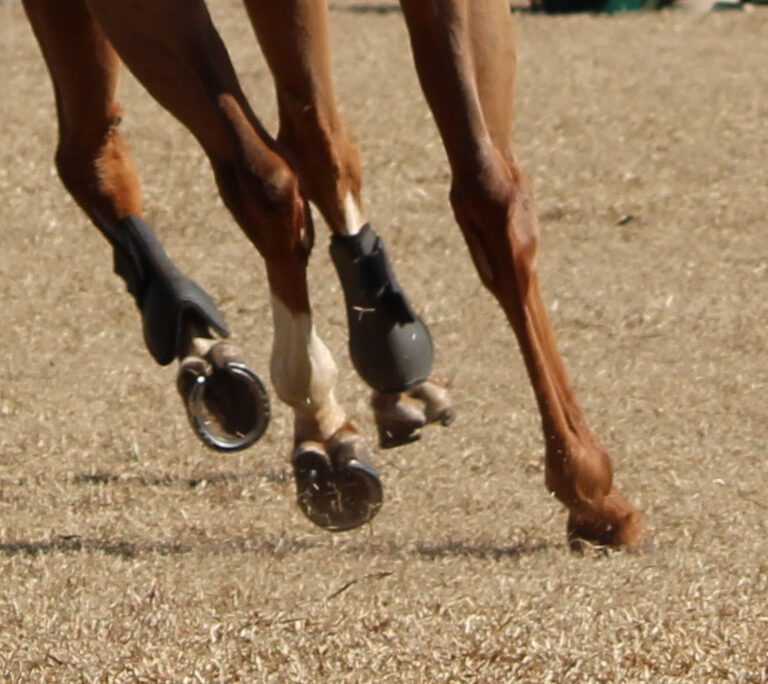
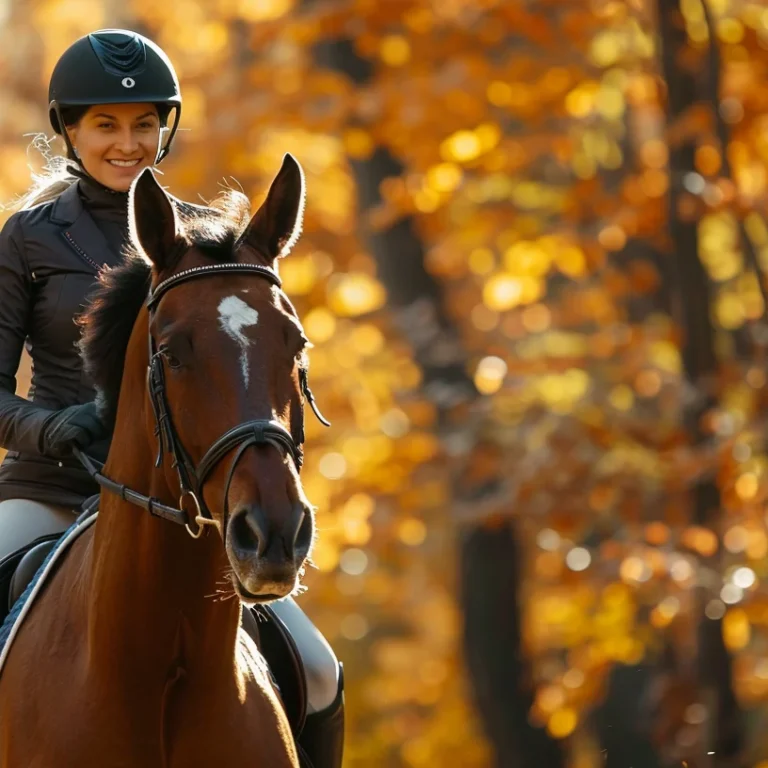
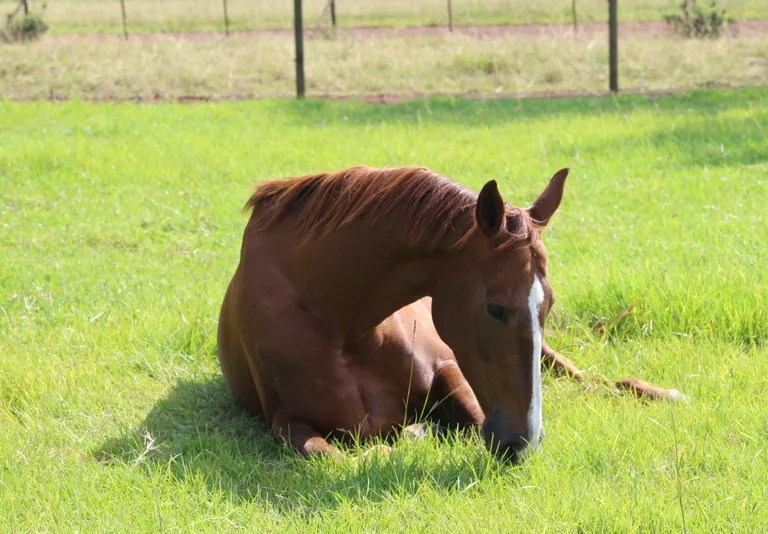
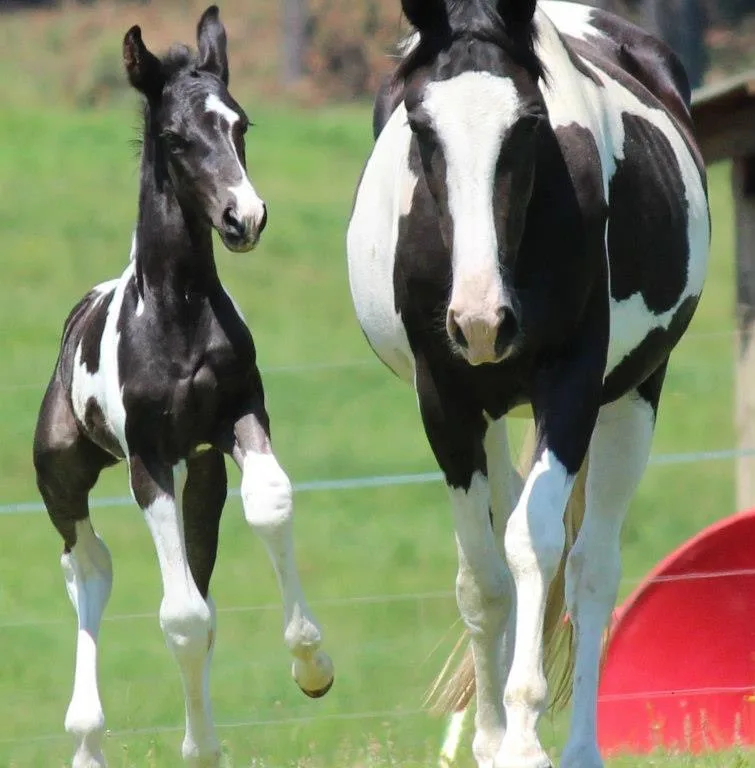
Leave a Reply